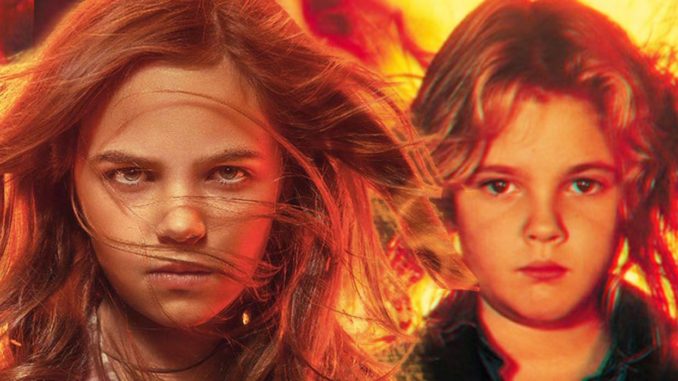
There’s nothing new about the recycling of horror films. The eighties saw their share of them. The difference is that some of those not just equalled, they surpassed their predecessors. The Thing, The Fly and – I am prepared to die on this hill – Cat People are all superior to the movies which inspired them. However, I’m hard pushed to think of any recent example about which the same thing could be said. Dawn of the Dead might be the last example of a remake which I would say improves on the original – though I was never as huge a fan of Romero’s movie as some. And for every remake which reaches the level of a respectable effort (Evil Dead), there are a slew of dismal failures like Black Christmas, which should have been strangled at birth.
Part of the problem is, I feel, the properties selected for remake. Looking at the eighties classics, they were fresh takes on movies that offered room for improvement, either technically (The Thing) or in going where the originals couldn’t (Cat People). New ones appear to be generated purely on the basis of “these old films were successful.” What, pray tell, is the point of the recent remakes of Jacob’s Ladder or Poltergeist? I’ve not seen either, I will admit. Yet that alone says something about their pointlessness. And do not even get me started on the US remake of Martyrs, which by all accounts is a travesty, not fit to carry the spiked mask of the French original. I refuse to watch that one out of principle. Or, at least, until I have a fully-stocked liquor cabinet to hand. Let’s just hope the remake of Videodrome remains stuck in the production hell it has occupied since at least 2009.
Even when the maker has something new to offer, that’s no guarantee of success. Witness the feminist (or anti-feminist, I’m not sure) spin by Neil LaBute on The Wicker Man, which is memorable solely for kicking the whole Nic Cage cult into high gear. I guess you can file the upcoming Hellraiser remake, with a female Pinhead played by a trans woman, in the same category. I’m hoping it’s also going to be a musical: the Rocky Hellraiser Picture Show. Because why not? Yet, they keep trying. And trying. Black Christmas followed just 13 years after the previous remake, and I’ve lost count of how many times Texas Chainsaw has now been more or less rebooted, without approaching the raw intensity of Tobe Hooper’s. Again, we’re apparently looking at cash-ins based on name recognition alone, rather than any genuinely artistic motivation.
Which brings us to Firestarter. Few authors have been so relentlessly strip-mined by the studios as Stephen King, which is unsurprising, considering he’s among the most popular novelists of the past 40 years. The results have been a bit variable. To put it mildly. Then again, my little exposure to King’s written work has left me kinda underwhelmed. Here, I have not read the source novel, so what follows are reviews strictly of the two versions as movies, rather than as adaptations. [The recent one, in particular, has come in for a lot of criticism on that score] Can it end the 18-year streak of remakes that fall short? Read on, to find out…
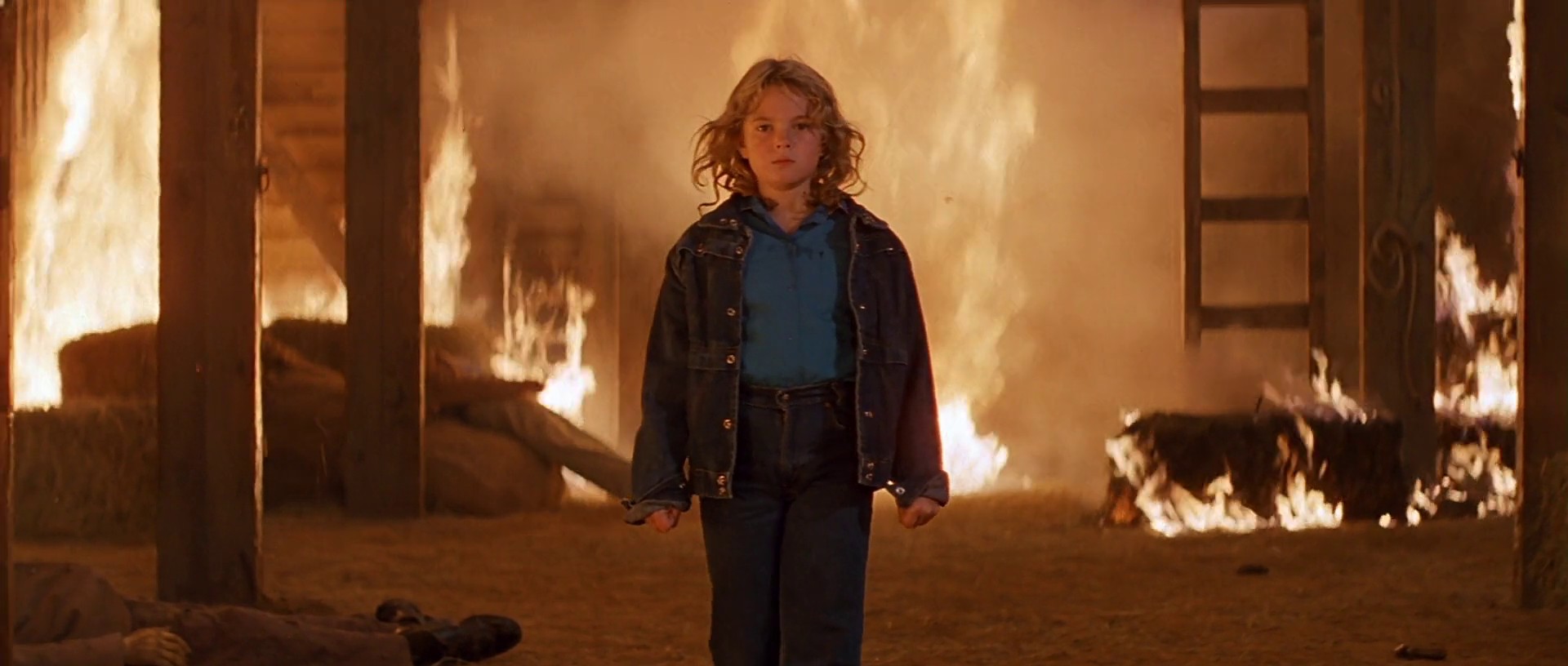
Firestarter (1984)
Rating: C-
Dir: Mark L. Lester
Star: David Keith, Drew Barrymore, George C. Scott, Martin Sheen
It’s somewhat ironic that John Carpenter was originally supposed to direct this. However, after The Thing tanked at the box-office, he was let go from the project, and replaced by the more commercially “safe” Lester. The irony being that The Thing is now regarded (rightfully) as one of the greatest scifi/horror films of all time, while this is… not. It’s very much a mid-tier Stephen King adaptation, far less well remembered than the similarly themed The Dead Zone, from around the same time. I can understand why: it’s lumbering when it needs to be taut, needlessly coming in a little shy of two hours, and only comes to life at the end, when a pissed-off Drew gets enough XP to learn her Level 3 Fireball spell.
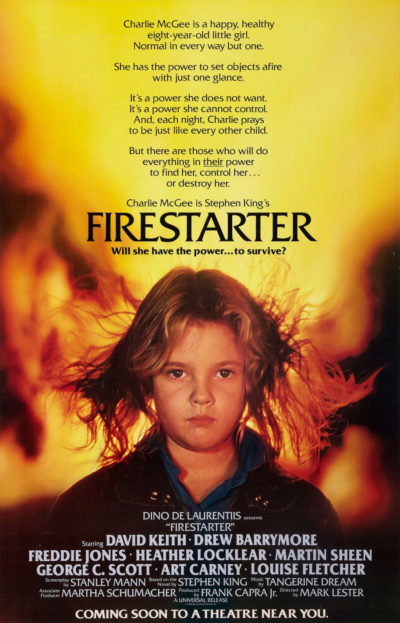 She plays Charlie McGee, daughter of Andrew (Keith) and Vicky (Heather Locklear), who met during a fringe scientific experiment, carried out by a dodgy arm of the government. Dosed with a substance called Lot 6, she can read minds, and he can compel people to act in accordance with his will. Charlie, meanwhile… Oh, see the title. Or the poster. Figure it out for yourself. Though the stiff breeze which springs up out of nowhere, each time she furrows her little brow and gets toasty, is a nice touch. Naturally, the government under Captain Hollister (Sheen) are very keen to get their hands on her, with psycho Indian hitman John Rainbird (Scott) eventually sent out to bring in Charlie.
She plays Charlie McGee, daughter of Andrew (Keith) and Vicky (Heather Locklear), who met during a fringe scientific experiment, carried out by a dodgy arm of the government. Dosed with a substance called Lot 6, she can read minds, and he can compel people to act in accordance with his will. Charlie, meanwhile… Oh, see the title. Or the poster. Figure it out for yourself. Though the stiff breeze which springs up out of nowhere, each time she furrows her little brow and gets toasty, is a nice touch. Naturally, the government under Captain Hollister (Sheen) are very keen to get their hands on her, with psycho Indian hitman John Rainbird (Scott) eventually sent out to bring in Charlie.
There’s quite a lot here which has not stood the test of time, and/or wasn’t very good to begin with. Top of the list is likely Keith’s performance, which feels like a poorly conceived effort to channel Patrick Swayze. Scott is creepy, for all the wrong reasons. Rainbird’s relationship with Charlie feels inappropriate from a 2020’s angle, and few people are likely less appropriate to play a native American than Gen. Patton. The film’s main strength is Barrymore, who alternates between adorability and frankly being damn scary. Every other minute, you want to hug her… while wrapped safely in a fireproof suit. At the age of eight, I guess she was still a couple of years from going into rehab.
The structure doesn’t help, beginning when Charlie and her father are already on the run. This then requires a series of clunky flashbacks to get us caught up, and there is likely too much sitting around the lab, getting father and daughter to demonstrate their talents. Charlie probably isn’t the only one to issue a derisive snort when she is presented with a pile of wood chips. When things do eventually get going though, this is deliciously well-done (in the steak sense, at least), a throwback to the days in Hollywood when wanting to blow stuff up, required actually blowing stuff up. I would nod in acceptance if you told me the finale was responsible for starting off global warming. It just doesn’t quite make up for the 105 minutes which preceded it.
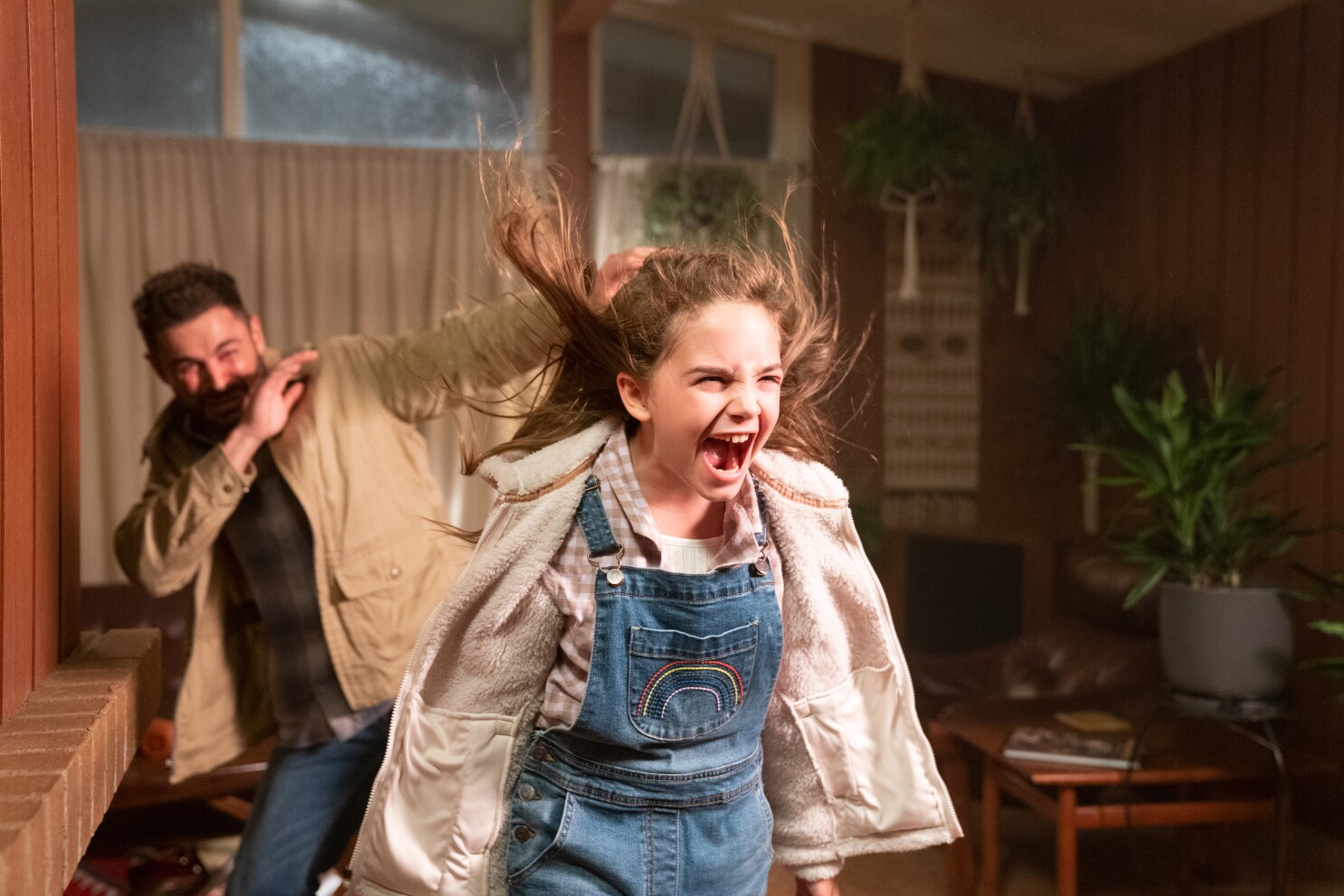
Firestarter (2022)
Rating: C
Dir: Keith Thomas
Star: Zac Efron, Ryan Kiera Armstrong, Michael Greyeyes, Gloria Reuben
At the time of writing, I have not read the Stephen King novel on which both this and the 1984 version were based. But I would have thought that a book needed to have something of merit to merit not one, but two cinematic adaptations. Having seen both, with their differing approaches to the text, I’m not sure what quality was present in the original source material to inspire these movies. Both turn out to be rather pedestrian and lacklustre, so is that an accurate reflection of King’s work? This one is slightly better, I feel, though the improvement may partly be a result of it being 20 minutes shorter.
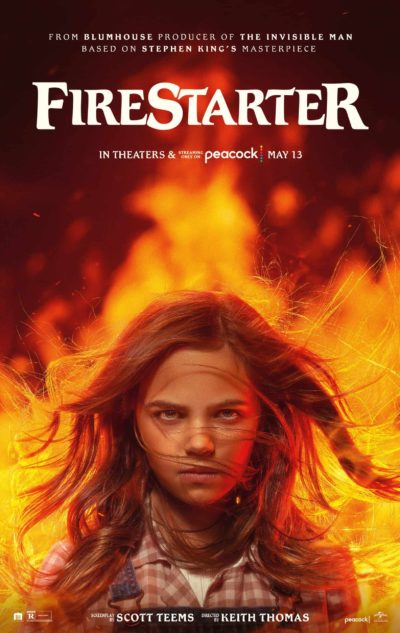 The basic plot is the same. Andy McGee (Efron) has a daughter, Charlie (Armstrong). As a result of a government experiment, both have psychic talents, and are on the run as a result. Maybe it seemed fresh and original in the early eighties. Now, it’s the kind of boilerplate conspiracy plotting we’ve seen often enough, with a side-order of X-Men like paranormal powers. That is not necessarily a fatal flaw, providing the way it’s executed is sufficiently imaginative, energetic or entertaining enough in some other way. Here, it manages to rise only to a level of competence, though the straightforward approach to the narrative does work better than the unnecessarily tangled mess in the 1984 version. The other major improvement is Charlie going all Hanna at the end, breaking into the facility where her father is being held. It gives her a much-needed greater degree of agency.
The basic plot is the same. Andy McGee (Efron) has a daughter, Charlie (Armstrong). As a result of a government experiment, both have psychic talents, and are on the run as a result. Maybe it seemed fresh and original in the early eighties. Now, it’s the kind of boilerplate conspiracy plotting we’ve seen often enough, with a side-order of X-Men like paranormal powers. That is not necessarily a fatal flaw, providing the way it’s executed is sufficiently imaginative, energetic or entertaining enough in some other way. Here, it manages to rise only to a level of competence, though the straightforward approach to the narrative does work better than the unnecessarily tangled mess in the 1984 version. The other major improvement is Charlie going all Hanna at the end, breaking into the facility where her father is being held. It gives her a much-needed greater degree of agency.
Another positive was psycho government assassin Rainbird (Greyeyes), at least played by a genuine native American here. From the moment we first meet him, listening to the most un-Indian of musical tracks – Nitzer Ebb’s Control I’m Here – he’s out of kilter to an enjoyable degree. If another familiar trope, it’s at least an entertaining one. The problems feel mostly in the direction, with a repeated tendency to fumble what should be significant emotional bullet-points. For example, there’s a scene where Charlie inadvertently sets fire to a cat. It should be a learning experience for her. Except, the way it’s handled, there’s no particular impact: you’re too busy thinking, “Damn, they just set fire to a cat.”
Except, naturally, they didn’t. It’s another problem – maybe the biggest, compared to the earlier film – that the CGI fire often fails to look semi-convincing. Elsewhere on the technical side, amusing to hear the retro score, by John Carpenter and his son, Carpenter having been fired as director of the 1984 version. That’s some long-game retribution. Generally though, it’s just another in the long line of almost entirely superfluous horror remakes. At least in this case, they did target one which had room for improvement. The problem is, it feels as if, in the process of fixing the mistakes made by the original, they introduced virtually as many flaws of their own. The result is almost as mediocre, just differently so.
